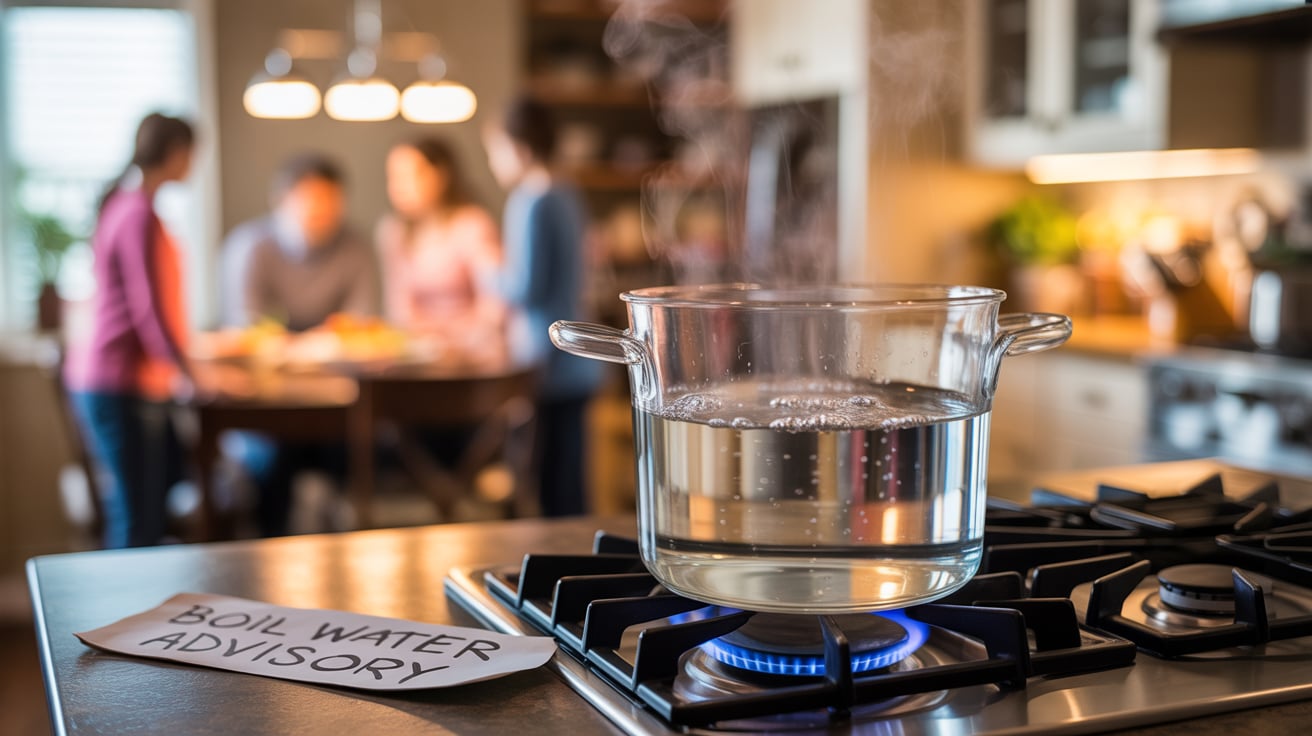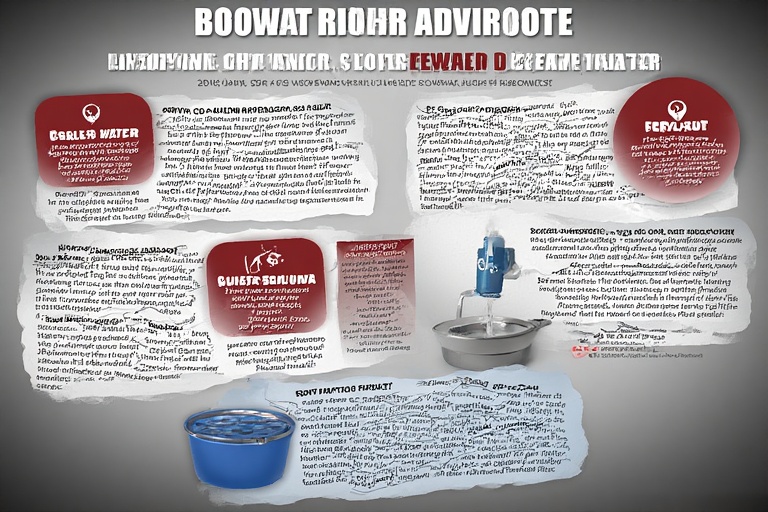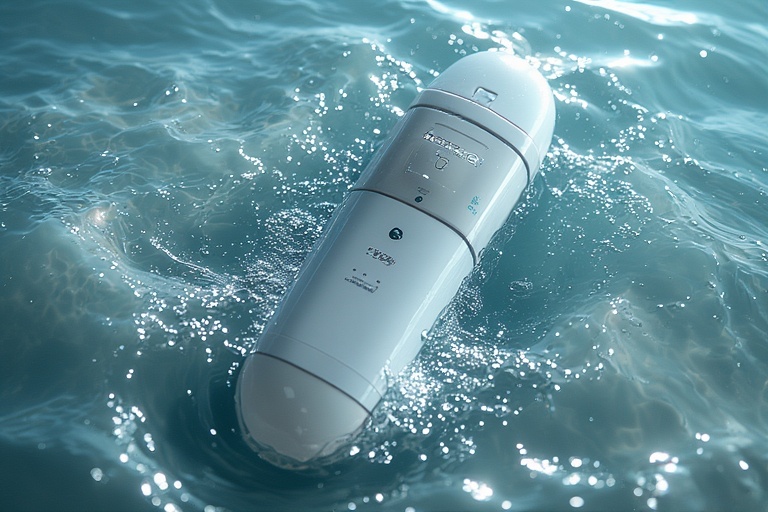
Fayetteville PWC boil water advisory
What Is a Boil Water Advisory?
A boil water advisory is a public health notice issued when water quality is compromised. Specifically, the Fayetteville PWC boil water advisory alerts residents to potential contamination risks. Consequently, boiling water becomes necessary to eliminate harmful bacteria. Typically, these advisories stem from water main breaks or system pressure loss, which can introduce contaminants.
The Fayetteville PWC, responsible for the city’s water supply, issues advisories as a precaution. For instance, low water pressure can allow bacteria to enter pipes. Therefore, residents must boil water for drinking, cooking, or brushing teeth. Importantly, advisories ensure public safety while the PWC restores water quality.
Why Did Fayetteville PWC Issue the Recent Boil Water Advisory?
Recently, a water main break triggered the Fayetteville PWC boil water advisory. This incident caused low pressure across the distribution system. As a result, bacteria could potentially infiltrate the water supply. Consequently, the PWC issued the advisory to protect residents in Fayetteville, Hope Mills, and parts of Cumberland and Hoke Counties.
The advisory affected thousands of households, prompting immediate action. For example, the PWC advised boiling water for at least one minute. Alternatively, residents could use bottled water. Although no contamination was confirmed, the precaution was necessary. Ultimately, the PWC aimed to ensure safe drinking water for all customers.
How Does a Water Main Break Cause a Boil Water Advisory?
A water main break disrupts the water distribution system significantly. Specifically, it causes pressure drops, which can allow contaminants to enter pipes. In Fayetteville, the recent break affected the high-pressure zone, impacting most PWC customers. Consequently, the Fayetteville PWC boil water advisory was issued to prevent health risks.
When pressure drops, groundwater or bacteria may seep into the system. Therefore, boiling water kills potential pathogens. Additionally, the PWC conducts rigorous testing to confirm safety. Meanwhile, crews work to repair the break and restore pressure. Ultimately, these steps ensure the water meets safe drinking standards.
Who Was Affected by the Fayetteville PWC Boil Water Advisory?
The advisory impacted a wide area, including Fayetteville and Hope Mills. Additionally, parts of Cumberland and Hoke Counties were affected. However, customers in Stedman, Spring Lake, and Fort Liberty were unaffected. Specifically, the advisory targeted the high-pressure zone, covering most of the PWC’s service area.
Approximately 50,000 customers experienced low pressure or outages. Consequently, the PWC issued robocalls to notify affected households. Moreover, businesses, particularly restaurants, faced operational challenges. Therefore, residents were urged to conserve water and follow safety guidelines. Ultimately, the advisory ensured community-wide awareness and precaution.
How to Stay Safe During a Boil Water Advisory
During a boil water advisory, safety is paramount. First, boil water for at least one minute before using it for drinking or cooking. Alternatively, use bottled water for consumption. Additionally, avoid swallowing water while showering. Importantly, discard any ice made during the advisory period.
For food preparation, use boiled or bottled water. Similarly, wash dishes with boiled water or a dishwasher with a sanitizing cycle. Furthermore, conserve water to reduce system strain. Finally, flush water lines after the advisory is lifted. These steps ensure your household remains safe during a water advisory.
How Long Did the Fayetteville PWC Boil Water Advisory Last?
The recent Fayetteville PWC boil water advisory lasted approximately 48–72 hours. Initially issued on a Thursday, it was lifted by Friday evening. Specifically, tests confirmed the water met safe drinking standards. Consequently, residents could resume normal water use, though flushing lines was recommended.
The PWC conducted extensive testing during the advisory period. Additionally, crews completed temporary repairs to restore pressure. Meanwhile, conservation efforts helped stabilize the system. Ultimately, the swift resolution minimized disruptions. However, residents were advised to remain vigilant for future updates.
What Should You Do After the Advisory Is Lifted?
Once the Fayetteville PWC boil water advisory is lifted, take specific steps. First, flush all water lines for several minutes. This removes any stagnant water. Additionally, discard ice made during the advisory. Similarly, replace water filters in appliances like refrigerators.
Businesses, especially restaurants, should coordinate with regulatory agencies. For instance, they must ensure compliance with health standards. Furthermore, continue conserving water if requested by the PWC. Ultimately, these actions ensure your water is safe and your appliances function properly.
How Does the PWC Ensure Water Safety?
The Fayetteville PWC follows strict protocols to ensure water safety. First, they monitor the water system continuously. When issues like main breaks occur, they issue advisories promptly. Additionally, they conduct rigorous testing to detect contaminants. Consequently, the water undergoes thorough checks before the advisory is lifted.
The PWC collaborates with the North Carolina Department of Environmental Quality (NCDEQ). For example, they verify water quality through multiple tests. Furthermore, crews flush distribution lines to eliminate cloudiness. Ultimately, these measures guarantee safe drinking water for all customers.
How to Prepare for Future Boil Water Advisories
Preparation is key for handling future advisories. First, store bottled water for emergencies. Additionally, keep a pot dedicated to boiling water. Moreover, familiarize yourself with the PWC’s notification systems, like robocalls or social media updates. Consequently, you’ll stay informed during water quality issues.
Create an emergency kit with water purification tablets. Similarly, maintain a list of safe water practices. For instance, know which appliances require boiled water. Furthermore, teach family members about advisory protocols. Ultimately, preparedness reduces stress during a Fayetteville PWC boil water advisory.
Impact on Local Businesses and Restaurants
The boil water advisory significantly affected local businesses. Specifically, restaurants faced operational challenges. For example, many used bottled water for cooking. Additionally, some limited their menus to ensure safety. Consequently, businesses coordinated with health regulators to maintain compliance.
Some restaurants closed temporarily to avoid risks. However, others adapted by using boiled water. Moreover, the advisory prompted increased water conservation. Ultimately, businesses played a critical role in maintaining public health. Their quick response ensured safety during the Fayetteville PWC boil water advisory.
How to Conserve Water During an Advisory
Water conservation is crucial during a boil water advisory. First, limit non-essential water use, like washing cars. Additionally, take shorter showers to reduce demand. Moreover, fix leaks promptly to avoid waste. Consequently, these actions help maintain system pressure.
Use dishwashers instead of hand-washing dishes. Similarly, delay laundry until the advisory is lifted. Furthermore, collect rainwater for non-potable uses. Ultimately, conservation supports the PWC’s efforts to restore service. By working together, residents can minimize disruptions during a water advisory.
Common Causes of Boil Water Advisories in Fayetteville
Boil water advisories often stem from infrastructure issues. For instance, water main breaks are a primary cause. Additionally, heavy rainfall or storms can disrupt water systems. Consequently, pressure drops increase contamination risks. Therefore, the PWC issues advisories to protect public health.
Aging infrastructure also contributes to advisories. For example, old pipes may corrode or break. Similarly, construction activities can damage water lines. Moreover, power outages affecting water treatment plants may trigger advisories. Ultimately, understanding these causes helps residents stay proactive.
How to Stay Informed During a Boil Water Advisory
Staying informed is critical during a water advisory. First, check the PWC’s official website for updates. Additionally, follow their social media channels for real-time information. Moreover, sign up for robocall notifications. Consequently, you’ll receive timely alerts about the advisory status.
Monitor local news outlets for additional updates. Similarly, join community platforms like Nextdoor for neighborhood-specific information. Furthermore, contact the PWC directly with questions. Ultimately, staying informed ensures you follow safety guidelines during a Fayetteville PWC boil water advisory.
The Role of Community in Water Safety
The community plays a vital role during a boil water advisory. First, residents can share updates with neighbors. Additionally, businesses can educate customers about safety measures. Moreover, community groups can distribute bottled water to vulnerable populations. Consequently, collective efforts enhance public safety.
Report water issues, like discoloration, to the PWC promptly. Similarly, conserve water to support system recovery. Furthermore, spread accurate information to counter rumors. Ultimately, a united community strengthens the response to a Fayetteville PWC boil water advisory.
Environmental Factors and Water Advisories
Environmental factors often influence boil water advisories. For instance, heavy rains can overwhelm water systems. Additionally, hurricanes or tropical storms may cause outages. Consequently, these events increase contamination risks. Therefore, the PWC issues advisories to protect residents.
Climate change may exacerbate these issues. For example, extreme weather can strain aging infrastructure. Similarly, flooding can contaminate water supplies. Moreover, drought conditions may reduce water pressure. Ultimately, understanding these factors helps residents prepare for future advisories.
FAQs About the Fayetteville PWC Boil Water Advisory
What is a boil water advisory?
A boil water advisory is a public health notice. It alerts residents to boil water due to potential contamination. Specifically, the Fayetteville PWC issues these advisories when water pressure drops, increasing bacteria risks.
How long should I boil water during an advisory?
Boil water for at least one minute. Afterward, let it cool before use. Alternatively, use bottled water for drinking, cooking, or brushing teeth. This ensures safety during a Fayetteville PWC boil water advisory.
Can I shower during a boil water advisory?
Yes, showering is generally safe. However, avoid swallowing water while showering. Additionally, use boiled or bottled water for washing dishes or food preparation. Always follow PWC guidelines for safety.
How will I know when the advisory is lifted?
The PWC notifies customers through robocalls, social media, and their website. Additionally, local news outlets provide updates. Once lifted, flush water lines and discard ice made during the advisory.
Conclusion: Stay Safe and Informed
The Fayetteville PWC boil water advisory highlights the importance of water safety. By understanding its causes and following safety guidelines, you protect your household. Moreover, staying informed through PWC updates ensures timely action. Ultimately, preparedness and community cooperation are key. Visit the PWC website for the latest updates and stay proactive about water safety in Fayetteville, NC.



